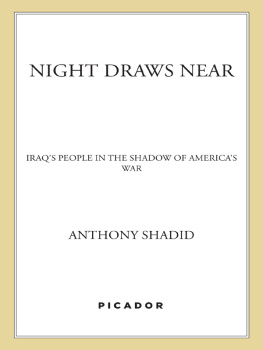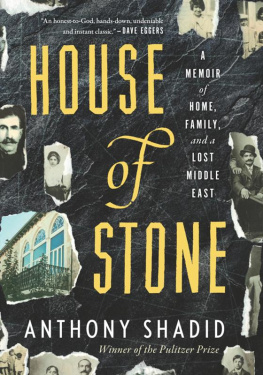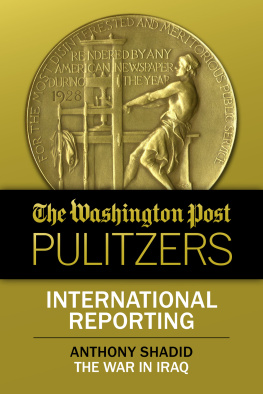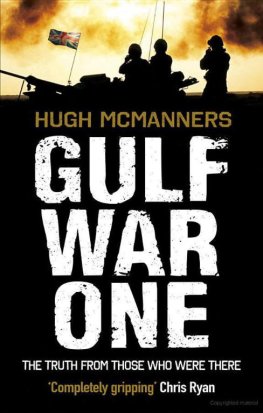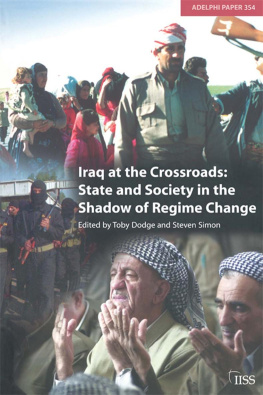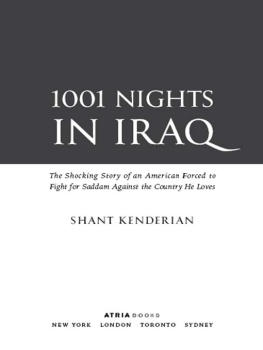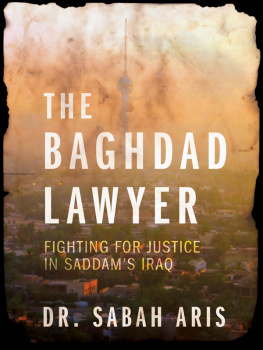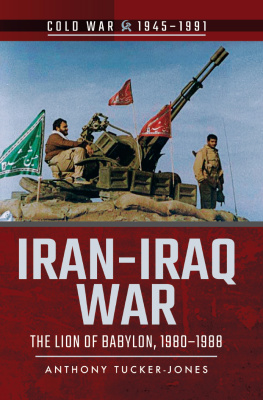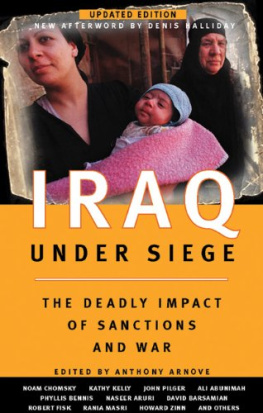
J ULIA E WAN
Anthony Shadid has reported for the Associated Press, The Boston Globe, and, since the beginning of the war in Iraq, The Washington Post . In addition to the 2004 Pulitzer Prize for International Reporting, his stories from Iraq have earned him an American Society of Newspaper Editors Award for deadline news reporting and the Overseas Press Clubs Hal Boyle Award for best newspaper or wire-service reporting from abroad. While at The Boston Globe, Shadid was awarded the 2002 George Polk Award for Foreign Reporting for a series of dispatches from the Middle East. An Arab American of Lebanese descent, he was born and raised in Oklahoma and now lives in Washington, D.C., and Baghdad.
Additional Acclaim for Night Draws Near
It is Anthony Shadids rare achievement to have recorded and restored the voices of those most directly affected by the war in Iraq: the Iraqis themselves. He converses equally easily with the Texas private and the Islamic insurgent, crossing the divide between Sunni, Shiite, and American, to extract the individual stories that give human contour to the chaos. Gripping, gritty, and heartbreaking.
Ben Macintyre, The New York Times Book Review
An important event, a ray of lightInformed, scrupulously observed, elegantly written, and deeply compassionate, Night Draws Near is a classic not just of war reporting but of what we might call frontline anthropology.
Gary Kamiya, Salon.com
First-rate reportingAn intimate and essential book which reveals why America failed to win over hearts and minds, in spite of toppling Saddam Night Draws Near reveals that this war might have gone a different wayespecially, it would seem, if we had listened to the people of Iraq as Shadid did from the beginning.
John Freeman, The Courier-Journal
Mr. Shadidwho speaks Arabic like a native and writes English like an angel, has put his best reporting into this book.
The Economist
Shadid won a Pulitzer for his work in Iraq, and his account of the invasion and its uncertain aftermath is both stark and profoundly humane. Shadids concern isnt Pentagon policy but the interior life of the occupation, where the goals of the American mission remain, for the Iraqis he meets, tragically abstract.
The New Yorker
A colorful and moving account.
Bruce Ramsey, The Seattle Times
Masterful[ Night Draws Near ] may be the most important writing to come out of the war so far. The book is full of historical background and subtle observations that help explain the mindset of the Iraqis. [Shadid has] written a complex, sympathetic, and dark portrait of a people we still understand all too poorly. Its a book that every soldier, war planner, and policymaker should read.
Garrett M. Graff, The Washingtonian
Shadids stories are always affecting, sometimes uplifting, much more frequently heartrending. [An] unflinching depiction of wartime life.
Chris Toensing, The Nation
In Night Draws Near , Shadid moves deftly between revealing, exemplary, close-up personal stories and a wide-angled historical analysis that is remarkably engaging and accessible.
Tom Montgomery-Fate, The Boston Globe
Night Draws Near is perhaps the most nuanced, informative, and moving recent book about the Iraq conflict. Essential reading for Americans.
Brian Palmer, Newsday

To Greg and Laila, Memories and Hopes
And this illustrious city, although she still remains the capital of the Abbasid Caliphate, and center of allegiance to the imams of Quraish, yet her outward lineaments have departed and nothing remains of her but the name. By comparison with her former state, before the assault of misfortunes upon her and the fixing of the eyes of calamities in her direction, she is as the vanishing trace of an encampment or the image of the departing dream-visitant. There is no beauty in her that arrests the eye, or summons the busy passer-by to forget his business and to gazeexcept the Tigris.
IBN JUBAYR,
TWELFTH-CENTURY ARAB TRAVELER
Authors Note
Journalism is imperfect. The more we know as reporters, the more complicated the story becomes and, by the nature of our profession, the less equipped we are to write about it with the justice and rigor it deserves. Night Draws Near is no exception. This books account of the years I was in Iraq as a reporter are a first glance at those sweeping events. Some parts of the account may suffer from a lack of perspective and distance, and the years ahead may prove some interpretations wrong. I can make no claim to being comprehensive, either. Crucial parts of those yearsthe debates among American officials, the experience of the Kurds in northern Iraq, and the encounters of the U.S. military in Baghdad and elsewhereare dealt with only cursorily.
Night Draws Near relies overwhelmingly on the reporting that I conducted during my visits to Iraq. The first was in November and December 1998, when I traveled there as a reporter for the Associated Press. I returned to Baghdad in October 2002 with the Boston Globe . My longest stint was with the Washington Post , which sent me to Iraq in March 2003, weeks before U.S. troops invaded the country. I stayed through the war and its aftermath before leaving in June 2004 to write this book.
At times in the book, particularly in the later chapters, I have borrowed from reporting by my outstanding colleagues at the Post , namely Ariana Eunjung Cha, Rajiv Chandrasekaran, Thomas E. Ricks, and Karl Vick. Throughout, I have relied on the assistance and insights of the Iraqi staff at the Baghdad bureau, particularly Khaled Al-Saffar, Omar Fekeiki, Naseer Nouri, Bassam Sebti, and, of course, Nasir Mehdawi.
In the books first section, the historical passages rely on accounts mentioned in the bibliography. Of particular use was Richard Cokes Baghdad: The City of Peace . In the books last two sections, I drew liberally from the statements, leaflets, and posters that proliferated in the wake of Saddam Husseins fall. For biographical information on Grand Ayatollah Ali Sistani, I am indebted to the material provided by the Imam Ali Foundation in London. During much of my time, the office of Muqtada Sadr was generous in providing access to its followers as well as background on the workings of the seminary in Najaf. Those interviews were also essential in reconstructing the life of the elder Sadr.
Throughout the book, especially for discussions of religion, I have relied on earlier years of reporting in the Middle East, particularly Egypt, Lebanon, Palestine, Iran, and Turkey. Some passages of Night Draws Near draw on my earlier book, Legacy of the Prophet , which explored the intersection of political Islam and democracy.
Finally, a note on Arabic. As I mentioned in Legacy of the Prophet , transliterating Arabic into English is typically a messy business. This book does nothing to make it less so. In most cases, I have spelled names as they were given to me by the person interviewed or as they appear in common usage. It is the style of the Post to drop articles from proper names; for the sake of clarity, I have often followed that usage. In translating from Arabic, I have tried to stay as faithful as I can to the original words, while still conveying the meaning in a way understandable to a reader of English.

